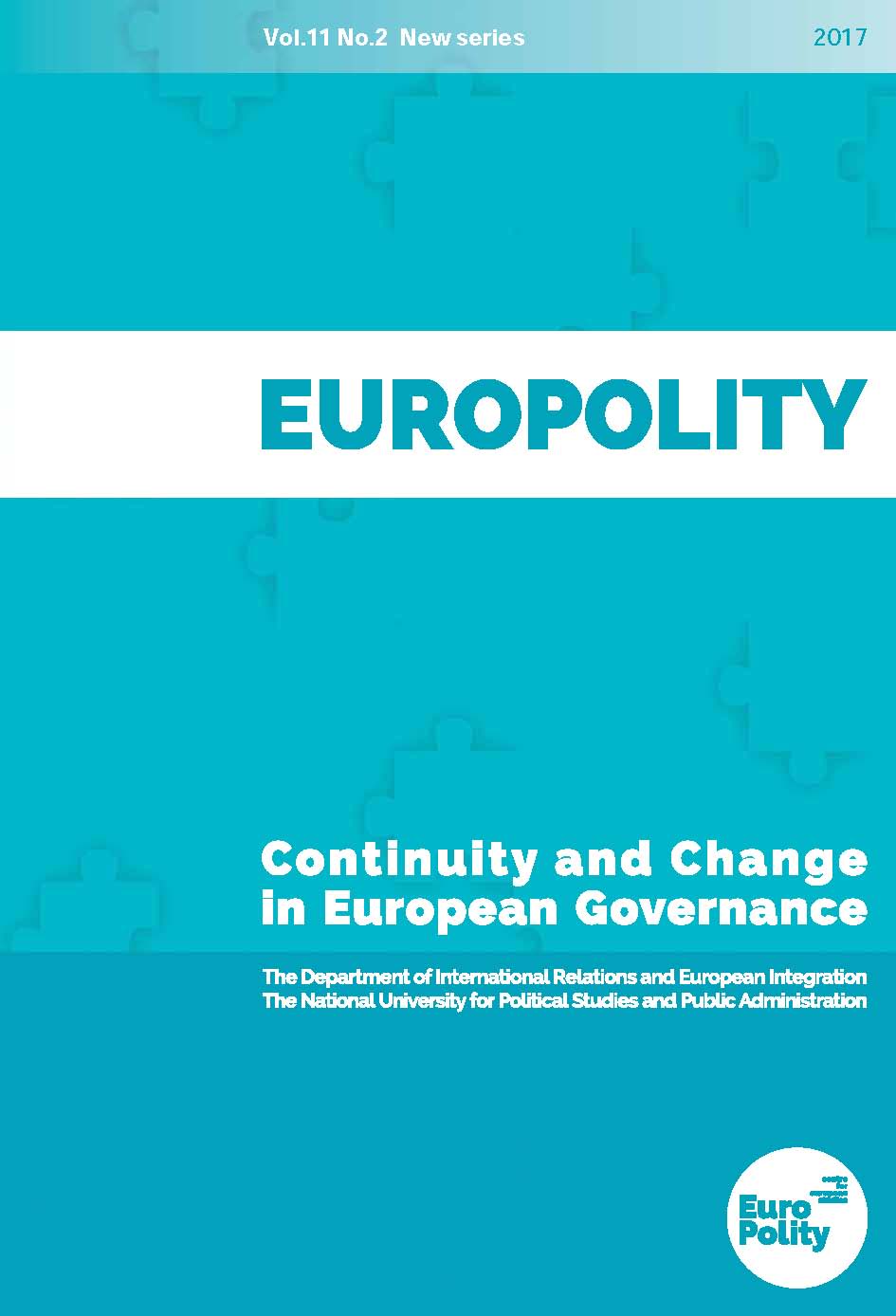GEOPOLITICS AT THE EASTERN BORDERS OF THE EUROPEAN UNION: EASTERN EUROPE BETWEEN THE EU AND RUSSIA
GEOPOLITICS AT THE EASTERN BORDERS OF THE EUROPEAN UNION: EASTERN EUROPE BETWEEN THE EU AND RUSSIA
Author(s): Dacian DunaSubject(s): Politics / Political Sciences, Social Sciences
Published by: Scoala Nationala de Studii Politice si Administrative (SNSPA)
Keywords: Enlargement; fragmentation; neighbourhood; geopolitics; EU; Eastern Europe; CBC; integration
Summary/Abstract: Geopolitics has changed dramatically over the last century, from a modernist discipline focused on the impact of geography on politics and international relations, to a postmodern approach in which traditional assumptions of reality are getting blurred, like the in-out distinction, borders are getting permeable, and state-centrism is replaced by multiplicity. A postmodern actor such as the European Union provides a good example of the sort. The EU has managed to assimilate most of the instruments and policies developed during the course of European integration, including regional policy, or cross-border cooperation, a territorial approach to development across the border regions of Europe pioneered by the Council of Europe since the 1950s. This paper tries to compare the policies of the European Union pre- and post-enlargement regarding Eastern Europe, using a geopolitical approach, questioning whether the recent geopolitical resurgence of Russia has the potential to question the influence of the European Union over its Eastern neighbourhood.
Journal: Europolity - Continuity and Change in European Governance
- Issue Year: 11/2017
- Issue No: 2
- Page Range: 117-136
- Page Count: 19
- Language: English

